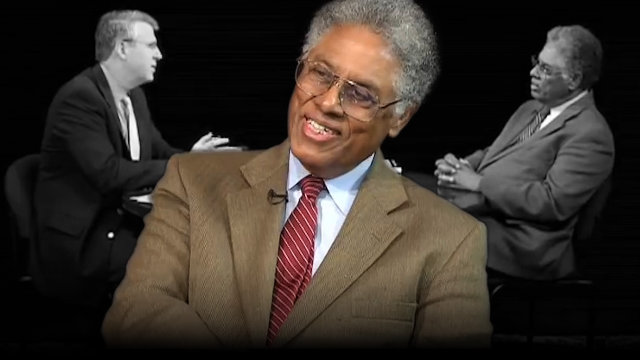Federal Reserve Chair Jerome Powell’s Jackson Hole speech in August 2025 stirred markets with hints of a potential rate cut. Stocks rose, bond yields fell, and investors cheered (Reuters, 2025; MarketWatch, 2025). But how might economist Thomas Sowell, a long-time critic of central planning and government overreach, respond to Powell’s remarks? Let’s explore.
1. The Limits of Fine-Tuning
Powell’s speech signaled that the Fed is carefully balancing inflation risks (from tariffs and rising costs) against slowing job growth (Federal Reserve, 2025). To Sowell, this would look like another attempt at economic engineering. In Knowledge and Decisions (Sowell, 1980), he warned that the economy is far too complex for policymakers to “steer” accurately in real time. Much like an engineer working with a system full of lag and noise, the Fed’s interventions may create instability rather than stability.
2. Inflation: The Ever-Present Danger
Sowell consistently argued that inflation is a monetary problem, born from excessive money and loose policy (Basic Economics, Sowell, 2014). He would likely question Powell’s willingness to cut rates even as new tariffs push prices upward (AP News, 2025). For Sowell, this would echo past mistakes—choosing short-term comfort over long-term discipline, risking higher prices that ultimately hurt ordinary households.
3. Politics Over Policy?
Powell emphasized that decisions would remain data-driven, not political (Federal Reserve, 2025). But Sowell might not be convinced. In The Vision of the Anointed (Sowell, 1995), he highlighted how economic policies often bend under political pressure. In a climate where unemployment is edging up and political leaders are watching closely, Sowell could view Powell’s “cautious optimism” as a step toward expediency rather than sound economics.
4. The Seen vs. the Unseen
Markets surged after Powell’s speech, a classic example of what Sowell (channeling Bastiat, 1850) might call the “seen” effect—lower borrowing costs, happier investors, rising asset values. But Sowell would remind us of the “unseen” costs: potential bubbles, distorted investments, and, above all, inflation that erodes purchasing power for families living paycheck to paycheck.
An Engineering Analogy
Imagine a control system designed to keep a process stable. If it reacts too late or over-corrects, the system oscillates instead of stabilizing. Sowell might say the Fed is doing exactly that—constantly adjusting rates in response to lagging indicators, creating cycles of boom and bust rather than balance.
The Sowell Takeaway
In short, Thomas Sowell would likely see Powell’s Jackson Hole speech as another case of the Federal Reserve overestimating its ability to fine-tune the economy. The cheer from Wall Street would not impress him. What would matter is the unseen, long-term consequence: the risk of inflation, distorted markets, and a public left paying the price for policymakers’ misplaced confidence.
Final Thought : If Sowell were writing today, his commentary might be as sharp as ever: “The question is not whether Jerome Powell can balance inflation and unemployment with a few interest rate adjustments. The question is whether anyone can.”
References
Bastiat, F. (1850). That Which is Seen and That Which is Not Seen.
Federal Reserve (2025). Jerome Powell’s Jackson Hole Speech. Retrieved from federalreserve.gov
MarketWatch (2025). Bond market rallies after Powell ‘walked a fine line’ with Jackson Hole speech.
Reuters (2025). Powell fires up markets, but some investors see reason for caution.
Sowell, T. (1980). Knowledge and Decisions. Basic Books.
Sowell, T. (1995). The Vision of the Anointed. Basic Books.
Sowell, T. (2014). Basic Economics: A Common Sense Guide to the Economy. Basic Books.
AP News (2025). Powell signals Fed may cut rates soon even as inflation risks remain.




